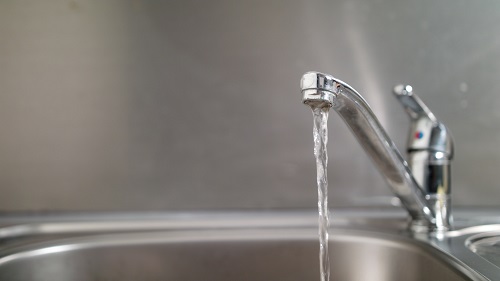Pittsburgh Water to Use Pipe Additive
THURSDAY, MARCH 28, 2019
In order to address corrosion in lead pipes, the Pittsburgh Water and Sewer Authority recently began opening street hydrants and flushing water mains in the anticipation of adding orthophosphate to the water supply, an additive often used to control the release of lead and copper.
According to the Pittsburgh Post-Gazette, the PWSA expects to begin replacing lead water service lines in the next few weeks, totaling the replacement of 4,500 lines by June 2020.
PWSA Charged Over Lead
In early February, Pennsylvania Attorney General Josh Shapiro filed 161 criminal charges against the PWSA, alleging that the authority had failed to notify residents of when lead pipe replacements would be occurring, and failed to sample water within a specified timeframe after the pipes had been replaced.
According to the Associated Press, the charges are a breach of Pennsylvania’s safe drinking water law. Previously, the PWSA admitted civil liability; state regulators fined the authority $2.4 million.

 |
| profstocktv / Getty Images |
|
In order to address corrosion in lead pipes, the Pittsburgh Water and Sewer Authority recently began opening street hydrants and flushing water mains in the anticipation of adding orthophosphate to the water supply, an additive often used to control the release of lead and copper. |
Currently, the PWSA is under a mandate to replace at least 7 percent of its lead lines every year. Prosecutors allege that in 2016 and 2017, the authority replaced lines without providing necessary advance notice. (The law mandates that customers are warned ahead of time and are provided with information on how to minimize exposure to lead.)
According to the state AG, Pennsylvania law makes mandatory that to remediate a lead level problem, a water system operator must:
- Replace 7 percent of its water lines, until there are two consecutive monitoring periods that provide results at or below the action level;
- Notify residents using the system at least 45 days before replacing any lines, to help minimize any exposure to lead that may spike during pipe replacement; and
- Collecting samples within 72 hours of the pipes being installed.
Myron Arnowitt, Pennsylvania director of Clean Water Action, noted that the authority has moved to improve its lead pipe replacement program, which included replacing privately owned water pipes at no charge, namely those pipes that run between the curb and a house. The PWSA issued a report in mid-January noting that 2,825 lead service lines had been replaced since July 2016.
Water Additive Implementation
The authority announced earlier this week that it had sought approval from the state Department of Environmental Protection for the use of orthophosphate, rather than soda ash and lime.
“Orthophosphate addition is the interim step to reduce to the risk of lead in water found in some homes. Our long-term goal is to remove all lead service lines from the system,” said PWSA Executive Director Robert A. Weimar.
In February, Belton, South Carolina, announced its own plans to use orthophosphate for similar reasons. When used in water treatment, the additive serves as a protective barrier on service lines and household plumbing to help keep lead from getting into drinking water. The city’s lead problem was largely attributed to old pipes in old homes.
The DEP is expected to approve the chemical switch in the next couple of weeks. The decision to use orthophosphate was determined after a year-long study that demonstrated that the material better coated the interior of lead service lines, rather than soda ash or other options.
The DEP mandated the study back in 2016, when the state agency found the authority was using caustic soda, rather than soda ash and lime as specified in an operating permit.
PWSA spokesperson Will Pickering told the Post-Gazette that it could be several months before seeing a reduction in lead water levels. Main line flushing began March 18, and is slated to continue in different neighborhoods until March 29. The 2019 lead line replacement program is slated to start in the coming weeks.
Tagged categories: Health & Safety; Health and safety; Lead; Pipes









